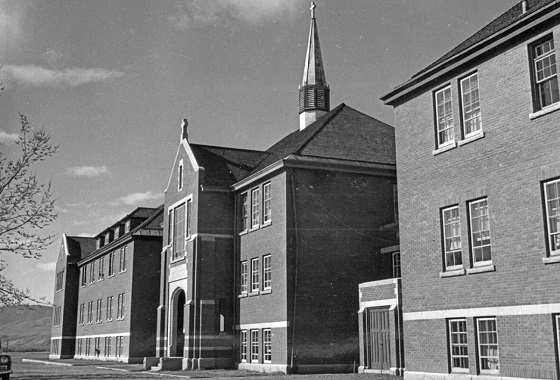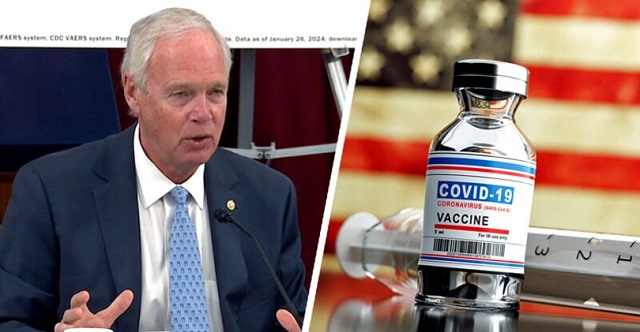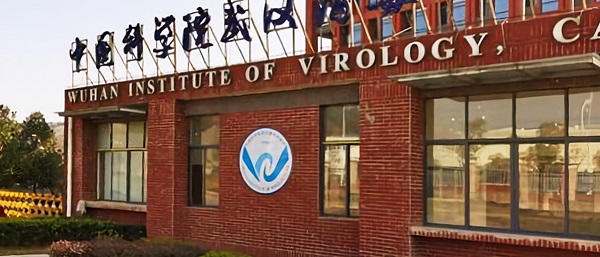Frontier Centre for Public Policy
They spent $8,000,000 without putting one shovel in the ground

From the Frontier Centre for Public Policy
That’s how much money the Kamloops Band spent on…..exactly what we have no idea. If you remember, that indigenous band claimed that the people running the local residential school had, for unexplained reasons, secretly buried 215 of the students under their care. They had no evidence that would have stood up in any court in the western world to back up that highly unlikely claim. But the federal government immediately gave them $8,000,000 to……well, that’s the mystery. What did they spend that money on? They have not put one shovel in the ground, but apparently they have somehow spent the $8,000,000 of taxpayers’ hard earned money. It was claimed that the money would be used to uncover the “heartbreaking truth”. But the only heartbreaking truth seems to be the complete waste of tax dollars.But it gets worse. A whole lot worse.
Because the Trudeau government- in addition to lowering the flag for six months, and performing teddy bear pantomimes in community ceremonies – then went on to promise not just $8,000,000, but $320,000,000 – to any other indigenous community that wanted to make similar claims.
It should come as no surprise to any sentient being that dozens of poor indigenous communities immediately took the bait and claimed the prize.
So, the result is that hundreds of millions of dollars have been spent somehow. But with no graves found. In fact, none have even put a spade in the ground.
Well, that’s not completely correct. The Pine Creek community in Manitoba was absolutely convinced that the stories about indigenous children dying under sinister circumstances, and being secretly buried under the local church, must be true. After all, they had all heard those stories.
The stories weren’t true. Excavations went ahead, and what was found? Stones.
The stories about priest murders and secret burials are just that. Stories. Meanwhile, hundreds of millions of dollars that should be spent on useful endeavours – like providing better health care for indigenous and non-indigenous Canadians – are being wasted. Rural paramedic services are being constantly cut back, for example. How many rural residents- indigenous as well as non-indigenous- will die from heart attacks because the paramedics were simply too far away from them to get them to the hospital in time to save their lives.There’s no money to improve rural medical services because millions are being wasted searching for phantom “missing children” and “unmarked graves”?
Canadians are beginning to wake up to the fact that they have been had. Somebody is getting rich on all of this government largesse. But it’s not poor indigenous Canadians. They remain stuck on the bottom rung of the socio-economic ladder. And medical and other essential services go wanting, because of this complete waste.
So, are there people in “unmarked graves”?
Absolutely. Billions of them in fact. This planet is basically one huge graveyard. The number of marked graves, with headstones naming the person interred, is a tiny fraction of the billions of people who have died on this planet.
Are the remains of some of the children who died from disease while attending residential school in unmarked graves? Absolutely. For that matter, so are the remains of many of the children who attended day schools, or no school at all in unmarked graves. There is nothing sinister about this fact of life. It simply means that the families of those children did not keep up the graves and cemeteries where the children were interred. (The vast majority of children who died while enrolled in residential schools are buried on their home reserves). This is not a criticism of those families. In fact, some of those families might have died out, and cemetery upkeep became impossible. Others just had different priorities.
So, what we have is just a sad fact of life. Many children died of diseases a hundred plus years ago who would not have died today. Modern medicine is a wonderful thing. And indigenous children died in much greater numbers, for many different reasons. Tuberculosis, in particular, was a major killer of indigenous people.
In fact, tuberculosis is still 290 times higher in the indigenous community than in the mainstream community.
But the fact that death from disease was so much higher in the indigenous community than in the non-indigenous community has nothing to do with residential schools. It has nothing to do with the people running the schools, many of whom devoted their lives to working with indigenous people.
So, we come around to the question – why is $320,000,000 being spent to find the long lost burial places of children, simply because their families decided – for reasons of their own – to not keep up their gravesites? Because it is not true that there are thousands of “missing children” as alleged. Rather, as Professor Tom Flanagan puts it, in “Grave Error”, there are thousands of “forgotten children”. And as the special interlocutor, Kimberley Murray puts it, “These children are not missing, they are buried in local cemeteries”.
Perhaps that’s the reason that Murray’s upcoming National Gathering on Unmarked Burials has been postponed. Because there is nothing to say. Her six figure salary, and those of all of her staff and associates – to say nothing of the $320,000,000 that has been spent – somehow – on searching for phantom graves and phantom “missing children” – could have been better spent on the real needs of living children.
We are approaching the three year anniversary of the Kamloops claim that 215 children from the local residential school had been somehow killed and secretly buried in the apple orchard on the school grounds. There was no good reason to believe that highly improbable claim in the first place. It was only the foolish and emotional reaction of the Trudeau government, and the incompetence of the media that persuaded Canadians that they should take that nonsensical claim seriously in the first place.
It is time to get back to sanity. Treat those who claim – with no real evidence – that priests murdered and secretly buried children – exactly the same way that we treat those who claim that the Martians have landed, or that aliens have abducted their mothers.
Be polite. But don’t finance their delusions.
Brian Giesbrecht, retired judge, is a Senior Fellow at the Frontier Centre for Public Policy
Frontier Centre for Public Policy
Canada Lets Child-Porn Offenders Off Easy While Targeting Bible Believers

From the Fr0ntier Centre for Public Policy
By Lee Harding
Judges struck down one-year minimum prison sentences for child pornography possession. Meanwhile, the chair of the Parliamentary Human Rights Committee publicly stated that religious scriptures condemning homosexuality are “hateful.” Lee Harding says the 1982 Charter has led to an inversion of Canadian values.
Light sentences for child-porn possession collide with federal signals that biblical texts could be prosecuted as hate
Was Canada’s 1982 Charter meant to condemn the Bible as hate literature or to weaken sentencing for child pornography? Like it or not, that is the direction post-Charter Canada is moving.
For Halloween, the black-robed justices at the Supreme Court of Canada ruled that a one-year mandatory sentence for accessing or possessing child sexual abuse materials amounted to “cruel and unusual punishment.” The judgment upheld a similar ruling from the Quebec Court of Appeal.
A narrow 5-4 majority leaned on a hypothetical. If an 18-year-old received a sexually explicit image from a 17-year-old girlfriend, that image would technically be child porn. If prosecuted, the recipient could face a one-year minimum sentence. On that basis, the judges rejected the entire minimum sentence law.
But the real case before them was far more disturbing. Two Quebec men possessed images and videos that were clearly the result of abuse. One had 317 unique images of child porn, with 90 per cent showing girls aged three to six years old forced into penetration and sodomy by adults or other minors. The other had 531 images and 274 videos of girls aged five to 10 engaged in sexual acts, including anal and vaginal penetration and, in some cases, multiple children.
The sentences were light. The first offender received 90 days of intermittent imprisonment, served concurrently, plus 24 months of probation. The second received nine months of imprisonment and the same probation period. How is this acceptable?
The judgment did not emerge without warning. Daniel A. Lang, a Liberal campaign chair appointed to the Senate by Lester B. Pearson, saw this coming more than 40 years ago. On April 23, 1981, he expressed concerns that the new Constitution could be used to erode basic decency laws. He pointed to the U.S. experience and predicted that Canada could face a wave of cases challenging laws on “obscenity, pornography and freedom of speech,” leading to the “negation of federal or provincial legislation.”
His warning has come true. If Parliament wants to restore mandatory minimum sentences, it can do so by passing a new law that removes the obscure scenario judges used to strike them down. Section 33, the notwithstanding clause, gives elected officials the power to override court rulings for up to five years at a time.
This reflects Canada’s own system. In the British tradition Canada inherited, Parliament—not the courts—is the ultimate authority. British common law developed over centuries through conventions and precedents shaped by elected lawmakers. Section 33 protects that balance by ensuring Parliament can still act when judges disagree.
There is a democratic check as well. If a government uses Section 33 and voters believe it made the wrong call, they can remove that government at the next election. A new government can then follow the judges’ views or let the old law expire after five years. That accountability is precisely why Section 33 strengthens democracy rather than weakening it.
Yet today, Ottawa is working to limit that safeguard. In September, the Carney Liberals asked the Supreme Court to rule on new limits to how legislatures can use Section 33. Five premiers wrote to Carney to oppose the move. Former Newfoundland and Labrador premier Brian Peckford, the last living signatory to the agreement that produced the 1982 Constitution Act, has also condemned the attempt as wrongful.
The judges will likely approve the new limits. Why would they refuse a chance to narrow the one tool elected governments have to get around their rulings? For decades, the Supreme Court has made a habit of striking down laws, telling Parliament it is wrong and forcing political change.
And while minimum sentences for child-porn offenders fall, the Carney cabinet is focused on something else entirely: prosecuting Bible believers for alleged hate.
The quiet part was said out loud by Montreal lawyer Marc Miller, former minister of immigration and citizenship and chair of the Parliamentary Human Rights Committee. On Oct. 30, he told the committee, “In Leviticus, Deuteronomy, Romans, there’s other passages, there’s clear hatred towards, for example, homosexuals.”
The former minister added, “There should perhaps be discretion for prosecutors to press charges … [T]here are clearly passages in religious texts that are clearly hateful.”
That is the former minister’s view. Instead of Bible thumpers, we now have Charter thumpers who use their “sacred” document to justify whatever interpretation suits their cause and wield it against their ideological opponents. When wokeness hardens into dogma, disagreement becomes heresy. And we know what happens to heretics.
A country that lets child-porn offenders off easy while it hunts down Bible believers for fines and possible prison has lost its way. Most Canadians would reject this trade-off, but their rulers do not, whether in cabinet or on the judges’ bench. A dark shadow is settling over the country.
Lee Harding is a research fellow for the Frontier Centre for Public Policy
Business
Ottawa Pretends To Pivot But Keeps Spending Like Trudeau

From the Frontier Centre for Public Policy
New script, same budget playbook. Nothing in the Carney budget breaks from the Trudeau years
Prime Minister Mark Carney’s first budget talks reform but delivers the same failed spending habits that defined the Trudeau years.
While speaking in the language of productivity, infrastructure and capital formation, the diction of grown-up economics, it still follows the same spending path that has driven federal budgets for years. The message sounds new, but the behaviour is unchanged.
Time will tell, to be fair, but it feels like more rhetoric, and we have seen this rhetoric lead to nothing before.
The government insists it has found a new path, one where public investment leads private growth. That sounds bold. However, it is more a rebranding than a reform. It is a shift in vocabulary, not in discipline. The government’s assumptions demand trust, not proof, and the budget offers little of the latter.
Former prime ministers Jean Chrétien and Paul Martin did not flirt with restraint; they executed it. Their budget cuts were deep, restored credibility, and revived Canada’s fiscal health when it was most needed. Ottawa shrank so the country could grow. Budget 2025 tries to invoke their spirit but not their actions. The contrast shows how far this budget falls short of real reform.
Former prime minister Stephen Harper, by contrast, treated balanced budgets as policy and principle. Even during the global financial crisis, his government used stimulus as a bridge, not a way of life. It cut taxes widely and consistently, limited public service growth and placed the long-term burden on restraint rather than rhetoric. Carney’s budget nods toward Harper’s focus on productivity and capital assets, yet it rejects the tax relief and spending controls that made his budgets coherent.
Then there is Justin Trudeau, the high tide of redistribution, vacuous identity politics and deficit-as-virtue posturing. Ottawa expanded into an ideological planner for everything, including housing, climate, childcare, inclusion portfolios and every new identity category.
The federal government’s latest budget is the first hint of retreat from that style. The identity program fireworks are dimmer, though they have not disappeared. The social policy boosterism is quieter. Perhaps fiscal gravity has begun to whisper in the prime minister’s ear.
However, one cannot confuse tone for transformation.
Spending still rises at a pace the government cannot justify. Deficits have grown. The new fiscal anchor, which measures only day-to-day spending and omits capital projects and interest costs, allows Ottawa to present a balanced budget while still adding to the deficit. The budget relies on the hopeful assumption that Ottawa’s capital spending will attract private investment on a scale economists politely describe as ambitious.
The housing file illustrates the contradiction. New funding for the construction of purpose-built rentals and a larger federal role in modular and subsidized housing builds announced in the budget is presented as a productivity measure, yet continues the Trudeau-era instinct to centralize housing policy rather than fix the levers that matter. Permitting delays, zoning rigidity, municipal approvals and labour shortages continue to slow actual construction. These barriers fall under provincial and municipal control, meaning federal spending cannot accelerate construction unless those governments change their rules. The example shows how federal spending avoids the real obstacles to growth.
Defence spending tells the same story. Budget 2025 offers incremental funding and some procurement gestures, but it avoids the core problem: Canada’s procurement system is broken. Delays stretch across decades. Projects become obsolete before contracts are signed. The system cannot buy a ship, an aircraft or an armoured vehicle without cost overruns and missed timelines. The money flows, but the forces do not get the equipment they need.
Most importantly, the structural problems remain untouched: no regulatory reform for major projects, no tax-competitiveness agenda and no strategy for shrinking a federal bureaucracy that has grown faster than the economy it governs. Ottawa presides over a low-productivity country but insists that a new accounting framework will solve what decades of overregulation and policy clutter have created. The budget avoids the hard decisions that make countries more productive.
From an Alberta vantage, the pivot is welcome but inadequate. The economy that pays for Confederation receives more rhetorical respect, yet the same regulatory thicket that blocks pipelines and mines remains intact. The government praises capital formation but still undermines the key sectors that generate it.
Budget 2025 tries to walk like Chrétien and talk like Harper while spending like Trudeau. That is not a transformation. It is a costume change. The country needed a budget that prioritized growth rooted in tangible assets and real productivity. What it got instead is a rhetorical turn without the courage to cut, streamline or reform.
Canada does not require a new budgeting vocabulary. It requires a government willing to govern in the country’s best interests.
Marco Navarro-Genie is vice-president of research at the Frontier Centre for Public Policy and co-author with Barry Cooper of Canada’s COVID: The Story of a Pandemic Moral Panic (2023).
-

 International2 days ago
International2 days agoTOTAL AND COMPLETE BLOCKADE: Trump cuts off Venezuela’s oil lifeline
-

 Daily Caller19 hours ago
Daily Caller19 hours ago‘Almost Sounds Made Up’: Jeffrey Epstein Was Bill Clinton Plus-One At Moroccan King’s Wedding, Per Report
-

 Business1 day ago
Business1 day agoCanada Hits the Brakes on Population
-

 COVID-192 days ago
COVID-192 days agoSenator Demands Docs After ‘Blockbuster’ FDA Memo Links Child Deaths To COVID Vaccine
-

 Alberta19 hours ago
Alberta19 hours agoHousing in Calgary and Edmonton remains expensive but more affordable than other cities
-

 COVID-192 days ago
COVID-192 days agoChina Retaliates Against Missouri With $50 Billion Lawsuit In Escalating Covid Battle
-

 International2 days ago
International2 days agoHouse Rejects Bipartisan Attempt To Block Trump From Using Military Force Against Venezuela
-

 Business1 day ago
Business1 day agoWhite House declares inflation era OVER after shock report




